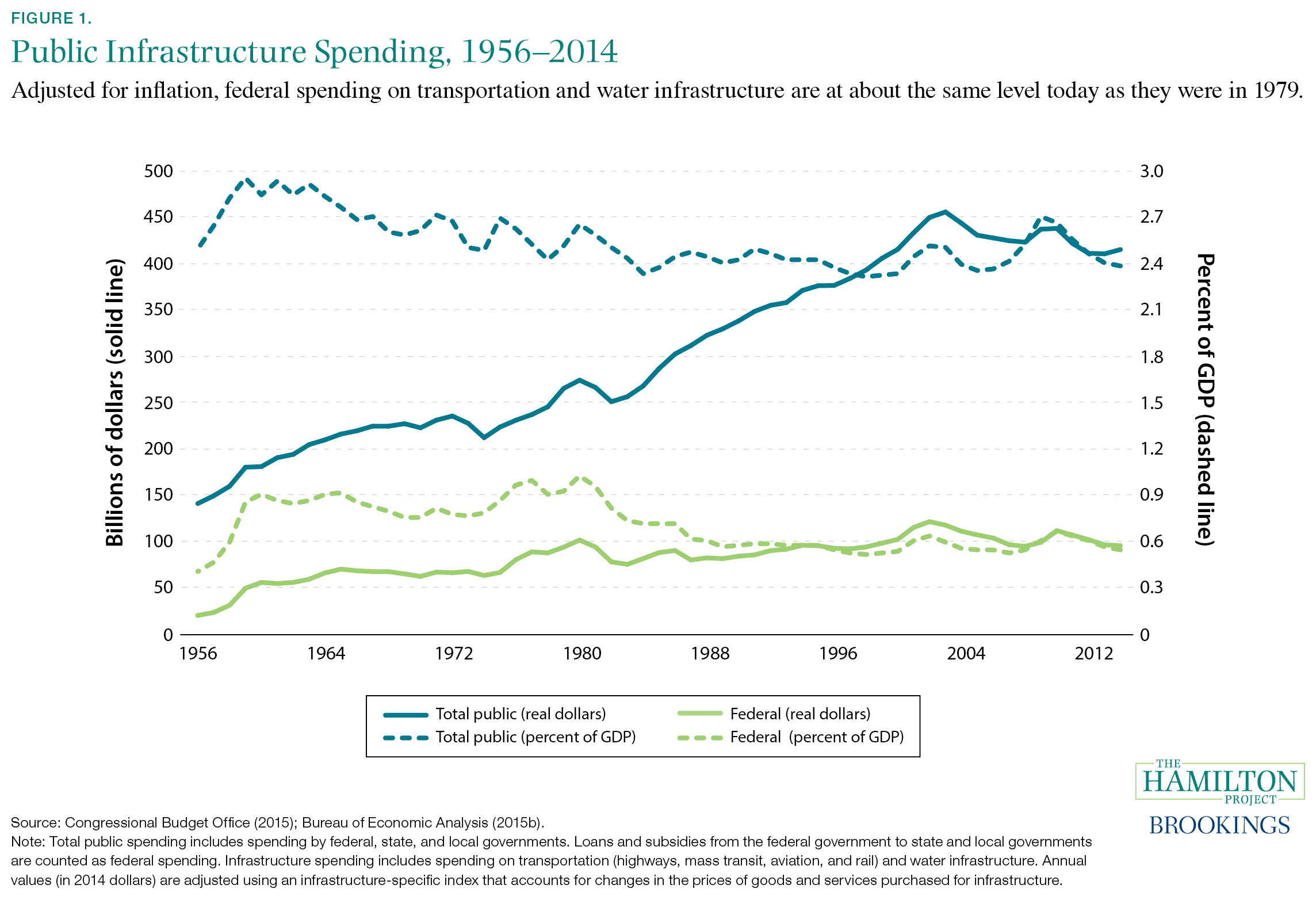The one thing both Republicans and Democrats agree on

Roads are "top-of-mind" to registered voters — regardless of political affiliation. Image: REUTERS/Keith Bedford
Nearly half of registered U.S. voters think American infrastructure has deteriorated in the last five years, a national poll released on Tuesday found, with Republicans taking the dimmer view.
While the poll showed that a bipartisan majority believes more infrastructure funding would positively affect the economy, those surveyed held different views on the nation's recent infrastructure changes.
Forty-one percent of Democrats said infrastructure has gotten worse over the last five years, while 53 percent of Republicans took that view.
Republican voters tend to be older and male, and Democratic voters younger and more diverse, said Kip Eideberg, vice president of public affairs and advocacy for the Association of Equipment Manufacturers, which commissioned the poll.
"The older voters tend to be more pessimistic and they tend to have a view that it was a lot better in the past, whereas younger voters tend to be more optimistic," Eideberg told Reuters.
The poll surveyed 1,975 registered voters between June 17-20. It had a margin of error of plus or minus 2 percentage points.
Concern for infrastructure, however, varies among generations. Seventy-three percent of those 65 and older rated U.S. roads poor to fair, compared with 55 percent of 18-34 year-olds, it said.

When asked about innovation, millennials placed more importance on vertical farms for producing vegetables in urban areas, self-driving cars and drones, the report said. Older voters felt most strongly about "smarter infrastructure."
Between 80 and 90 percent of those surveyed said roads, bridges and energy grids are in "some or extreme need of repairs."
More than 70 percent of respondents thought federal, local and state governments should be doing additional work to improve infrastructure across the nation.
Roads are "top-of-mind" to registered voters — regardless of political affiliation, the poll said. It noted that voters also believe bridges, railways, dams and water pipelines also require repairs.
While the report shows bipartisan support for increased infrastructure funding, a May report from the American Society of Civil Engineers said the United States will fall $1.44 trillion short of what it needs to spend on infrastructure through the next decade.
The ASCE also estimated that while the nation needs to spend $3.32 trillion to keep its ports, highways, bridges, trains, water and electric facilities up to date, it has funded only $1.88 trillion of that.
Don't miss any update on this topic
Create a free account and access your personalized content collection with our latest publications and analyses.
License and Republishing
World Economic Forum articles may be republished in accordance with the Creative Commons Attribution-NonCommercial-NoDerivatives 4.0 International Public License, and in accordance with our Terms of Use.
The views expressed in this article are those of the author alone and not the World Economic Forum.
The Agenda Weekly
A weekly update of the most important issues driving the global agenda
You can unsubscribe at any time using the link in our emails. For more details, review our privacy policy.
